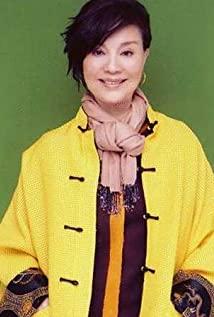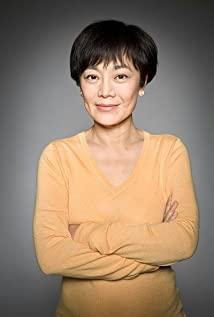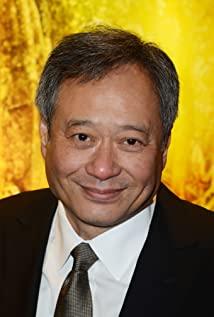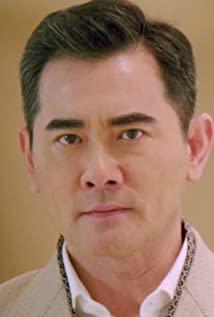Old Zhu loves to run in the morning. Before and after the morning run, he would always go to the room to wake up his daughters. In the first scene, Lao Zhu ran to Jia Ning's room and shouted "Ning Ning, Ning Ning." He walked to her bedside, shook Jia Ning's shoulder, and said, "Get up, lazy bone. Then he walked out of the door and looked at Jiaqian's room, who was no longer there. Finally, he walked to Jiaqian's room. He knocked on the door first, walked into the room and saw Jiaqian sleeping at the table, then walked quickly. Walking to the table, after clearing his throat, he shouted, "Jiaqian, get up." Then he scolded her twice, "I said that sleeping in this position is not good for your health, you know?" Qian immediately replied, "The doctor also said that jogging is not good for your back." Just
getting up in the first scene, you can more or less see the relationship between Lao Zhu and his daughters.
When calling the youngest daughter, Lao Zhu called Jia Ning's nickname, and then said "lazy bone". These are all expressions of love and doting, proving that the relationship between father and daughter is good on weekdays.
When calling the second daughter, when she pushed the door and saw that she was not sleeping on the bed, she immediately pulled her face down, and then walked to the table to wake up Jia Qian and then scolded him. So early in the morning, the two of them got into each other's mouths. It can be seen that the relationship between the second daughter and Lao Zhu is naturally inconsiderate, and even a "opposing" relationship with a hint of gunpowder.
But only the eldest daughter was never called to bed early in the film. Maybe she herself didn't like to sleep late or she got up early every day to pray or go to morning class. But her vacancy in this scene is to show her identity at home—the sensible eldest daughter. Combined with what Jiaqian said to Jiazhen in the play, she plays the role of her deceased mother at home. . The second is that the relationship between her and her father is not close, and the two seem to lack a kind of dependence and care between father and daughter.
The second time Lao Zhu woke up his daughters, he still went to Jia Ning's room first. In the medium shot, Lao Zhu stood at the door of the room and called "Jia Ning, Jia Ning" and walked up to him, shook Jia Ning's body, and said, "Get up, lazy." Unlike the first time, Jia Ning Ning opened his eyes after Lao Zhu left. Jia Ning in the medium shot, with a thoughtful expression. At this time, Lao Zhu changed his name to Jia Ning and Jia Ning stopped staying in bed, all of which paved the way for the change of Jia Ning's dependence on this family after he was leaving.
Then Lao Zhu walked to Jiaqian's room again, knocked on the door, looked up into the room and saw that Jiaqian was already awake and leaning on the bed. This surprised Lao Zhu. As if to hide his embarrassment, he quickly said, "Morning." When Jiaqian saw her father coming in, she got up and asked Zao, Ben wanted to say After ordering something (presumably he wanted to ask Lao Zhu about his body check, but he didn't speak very well), Lao Zhu sighed and turned away.
Jiaqian's secret concern for her father and the relationship between the two of them are not good at emotional communication here. One embarrassment and one hesitant, the opportunity to communicate just passed by. But isn't this a Chinese-style feeling?
In the third scene, the two daughters in the family found companions one after another and moved out of the house. Only Jia Qian, who was still single, stayed at home with her father. Lao Zhu woke up Jiaqian this day and saw that Jiaqian was still asleep on the bed, he first walked quietly to the bed, put his hand on Jiaqian's shoulder, leaned down to look at Jiaqian who was sleeping, and then remembered something He straightened up like he did, and yelled "Jiaqian!" in a mischievous voice, causing Jiaqian to get up from the bed in a jerky manner, and then Lao Zhu shook his hands and said, "Quickly, as if nothing had happened. You're late!" He walked out the door.
When Lao Zhu leaned over, it was an expression of his father's love for the only daughter who had not left in the family; when
Lao Zhu shouted again, it was a deepening of the image of an old man who had always refused to reveal his feelings and had been stubborn all his life.
From the three scenes where Lao Zhu wakes up his daughter(s), we can see the distance between the family members. Through such a series of plot settings and ingenious detailed descriptions, Li Ancha silently and invisibly expresses the relationships and emotions in Chinese families.
Apart from the expression of Ang Lee's theme, these three scenes actually buried threads everywhere in the plot promotion.
The lack of the role of the eldest daughter in the wake-up scene indicates that the prophecy she said at the beginning of the opening to be with her father at the end will not come true. It also shows the difference between her and the other two daughters, and her emotional relationship with her father. estrangement.
The different reactions of the second daughter in the three wake-up scenes show the change in the relationship between the second daughter and her father, from confrontation to relaxation, from embarrassment at not knowing how to speak to expressing it with company, which also makes the second daughter finally choose to stay In the old house, this ending seems natural and reasonable.
The two wake-up scenes of the third daughter are the embodiment of the emotional relationship between the father and the younger daughter from being intimately dependent to gradually stripping away. It also implies that Jia Ning, who is closest to his father, will eventually face the situation of getting married.
From the father asking you to eat, to the father asking you to wake up, these are Li An's thoughts and the emotional essence of a Chinese-style family.
Now that I have left home, the second time I see this place and think about it, I really miss the smell of my dad getting me up when I was in school.
View more about Eat Drink Man Woman reviews











